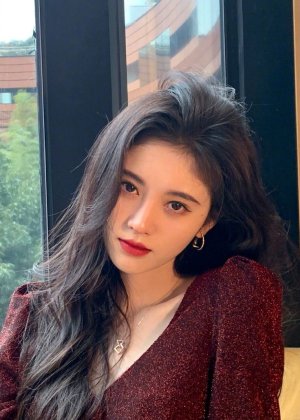Deze recentie kan spoilers bevatten
Open Ending not a sad Ending
The ending of "Doona" left me emotionally stirred and profoundly moved. As I watched the final moments of the series, tears welled up in my eyes, and I found myself weeping unabashedly. It was a testament to the storytelling's power to evoke genuine emotions and the connection I had developed with the characters.
This visceral reaction mirrored the deep empathy I had cultivated for the characters throughout the series. It wasn't merely a drama on a screen; it felt like a part of my own experiences. Their struggles, hopes, and unyielding love resonated with me on a profoundly personal level. I wept not out of sorrow but out of an overwhelming sense of connection and understanding.
The denouement of "Doona," the beloved Korean drama, has sparked spirited debate among fans. Some have lamented what they perceive as a melancholic conclusion, but I submit that the series indeed culminates with an open ending, an artistic choice that leaves the door ajar for myriad possibilities. It invites us to ponder the power of unwavering love and the ongoing journey of the characters.
In this denouement, it is crucial to recognize that the story does not merely come to a close but rather leaves its protagonists at a crossroads, poised to embrace the uncertain but hopeful future. Far from a sad ending, it is a testament to the intricacies of human relationships, where the road ahead is obscured, and the outcome remains hidden, much like life itself.
The central theme of "Doona" is the resilience of love, an enduring emotion that defies temporal constraints. The two main characters are seen diligently striving to be together, reminiscent of the struggles that unfold in real life. The beauty of this open ending lies in its mirroring of the authentic human experience, where the culmination of our journeys is yet to be unveiled. It is a reminder that love is an ongoing, dynamic force, an ever-evolving narrative that continues to unravel with each passing day.
To label this ending as sorrowful would be a myopic assessment, for it captures the essence of the human condition. The uncertainty it encapsulates is not merely a narrative device, but a reflection of life itself. As long as the enduring flame of affection remains ablaze within their hearts, there exists the promise of a future replete with possibilities. Thus, "Doona" concludes not with a finality, but with the ever-present potential for a beautiful, unwritten chapter.
The ending's poignant beauty, with its open and uncertain nature, struck a chord deep within me. It made me realize that life, just like this story, is a mosaic of emotions and experiences, often leaving us teary-eyed, yet profoundly appreciative of the journey. As the credits rolled and my tears flowed, I found solace in the notion that "Doona" had, in its own unique way, mirrored the complex tapestry of existence, leaving me with a heartwarming and tearful reminder of the power of love, hope, and the ongoing nature of our own stories.
This visceral reaction mirrored the deep empathy I had cultivated for the characters throughout the series. It wasn't merely a drama on a screen; it felt like a part of my own experiences. Their struggles, hopes, and unyielding love resonated with me on a profoundly personal level. I wept not out of sorrow but out of an overwhelming sense of connection and understanding.
The denouement of "Doona," the beloved Korean drama, has sparked spirited debate among fans. Some have lamented what they perceive as a melancholic conclusion, but I submit that the series indeed culminates with an open ending, an artistic choice that leaves the door ajar for myriad possibilities. It invites us to ponder the power of unwavering love and the ongoing journey of the characters.
In this denouement, it is crucial to recognize that the story does not merely come to a close but rather leaves its protagonists at a crossroads, poised to embrace the uncertain but hopeful future. Far from a sad ending, it is a testament to the intricacies of human relationships, where the road ahead is obscured, and the outcome remains hidden, much like life itself.
The central theme of "Doona" is the resilience of love, an enduring emotion that defies temporal constraints. The two main characters are seen diligently striving to be together, reminiscent of the struggles that unfold in real life. The beauty of this open ending lies in its mirroring of the authentic human experience, where the culmination of our journeys is yet to be unveiled. It is a reminder that love is an ongoing, dynamic force, an ever-evolving narrative that continues to unravel with each passing day.
To label this ending as sorrowful would be a myopic assessment, for it captures the essence of the human condition. The uncertainty it encapsulates is not merely a narrative device, but a reflection of life itself. As long as the enduring flame of affection remains ablaze within their hearts, there exists the promise of a future replete with possibilities. Thus, "Doona" concludes not with a finality, but with the ever-present potential for a beautiful, unwritten chapter.
The ending's poignant beauty, with its open and uncertain nature, struck a chord deep within me. It made me realize that life, just like this story, is a mosaic of emotions and experiences, often leaving us teary-eyed, yet profoundly appreciative of the journey. As the credits rolled and my tears flowed, I found solace in the notion that "Doona" had, in its own unique way, mirrored the complex tapestry of existence, leaving me with a heartwarming and tearful reminder of the power of love, hope, and the ongoing nature of our own stories.
Vond je deze recentie nuttig?























